One of the highlights of our trip to Panama’s Darien Province was our ride up a winding river to visit an Embera Indian village. Mogue (MOE-gay) is a curious mixture of modern conveniences vs. chickens running wild, a concrete schoolhouse vs. open, thatched huts on stilts, and schoolchildren in logoed t-shirts and jeans vs. bilingual (Embera/Spanish) adults who spend their days creating traditional handicrafts.
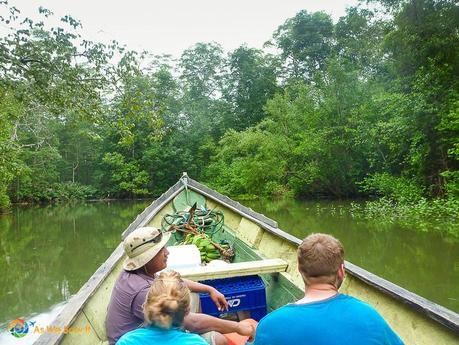
The easiest way to get through the Darien is by boat
Yep, even though the village is isolated, it is still connected to the outside world. Every Embera home has electricity (free solar cells courtesy of the government). I don’t know if the cells give enough energy for a refrigerator, but satellite antennas were everywhere and we heard radios all over the village being switched off as we entered. (I guess they thought it would give us a more “authentic” experience.)
Our hosts were dressed in traditional outfits with a modern twist. Their traditional bark skirts have been done away with, thanks to pressure to save the rainforest, so now they wear brightly-patterned skirts made with a special $25/yard fabric made just for them in China.
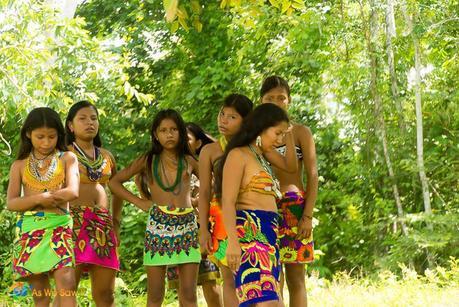
Embera welcoming committee
Many of the older women there were comfortable wearing nothing above the waist but others had a bra-like top made of beads (now made of plastic). Some of the topless younger girls, on the other hand, hid behind their arms and long hair.
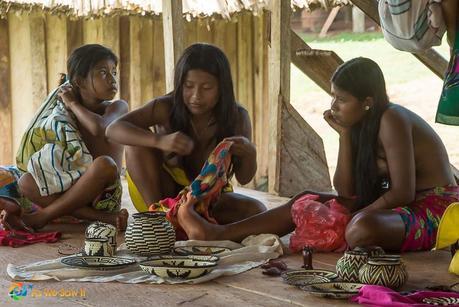
Self-conscious Embera girls hiding behind their hair.
Trips to these villages are marketed as cultural experiences, but in reality these visits are primarily focused on selling their handicrafts.
The men craft nice carvings of cocobolo wood and the women weave beautiful baskets of palm fibers. The most intricate ones will sell for hundreds of dollars because they can take weeks or months to create.
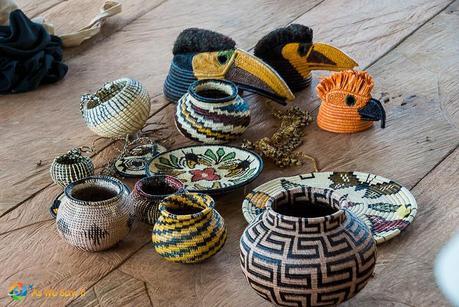
Embera goods for sale
An Embera basket is the perfect souvenir of Panama: useful and not created for tourists. With no middle-man to jack up the price I was able to afford two. I use them to hold my makeup. Our guide said we could barter, but at $35-$40 each I didn’t mind paying full price to the women who’d made them. They cost less than half of what I’d have paid in Panama City.
They say “getting there is half the fun” but these warm and friendly people must make up the other half. Here are a few other photos from our long journey.
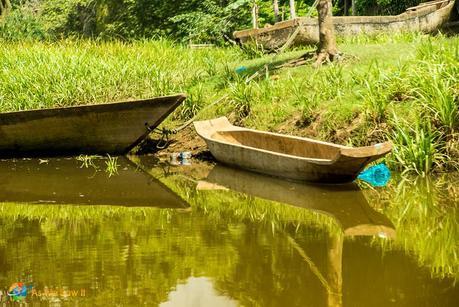
Dugout canoes line the waterways in the Darien as the main means of transportation for the Embera.
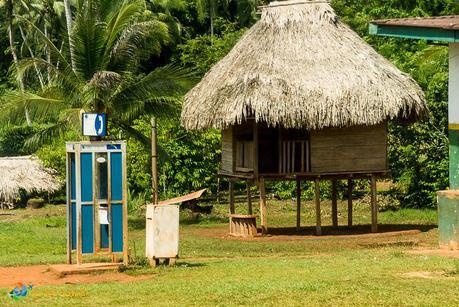
While traditional above ground huts are still used, modern technology is seen with solar panels and this phone booth along side their homes.
Beautiful baby taking in the marketing efforts of his mother.
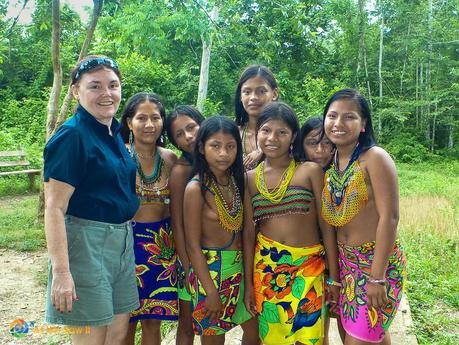
Saying our good-byes to our friendly hostesses. These girls were not camera shy.
What’s your take on the younger Embera girls who were topless, yet hiding behind their arms and hair?
(Visited 499 times, 53 visits today)Be sociable, share!Twitter53Facebook3Google+1LinkedIn2

